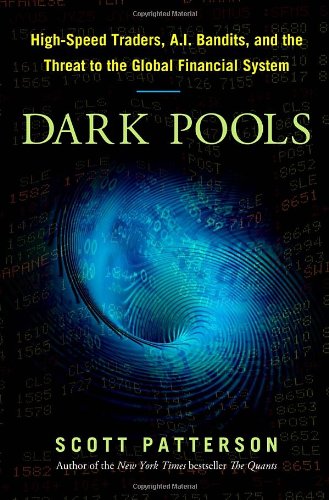 Reddit reviews Dark Pools: The Rise of the Machine Traders and the Rigging of the U.S. Stock Market
Reddit reviews Dark Pools: The Rise of the Machine Traders and the Rigging of the U.S. Stock Market
We found 3 Reddit comments about Dark Pools: The Rise of the Machine Traders and the Rigging of the U.S. Stock Market. Here are the top ones, ranked by their Reddit score.

I thought Dark Pools was much better written, but Michael Lewis is a darling and getting all the praise.
If anyone's interested further in this, I'd recommend a book called Dark Pools by Scott Patterson. I'm reading it at the moment and would recommend.
There are always drawbacks to any investment. If you know how to properly evaluate individual securities (and perhaps have access to an algo or two highlighting the proper buy and sell signals) then there are a whole range of additional options available. Yes, REIT ETFs tend not to be correlated with stocks in general but during extreme events, many different types of investments will fall in unison. Remember though, correlation does not equal causation. If your time horizon is long and your main objective with holding REIT ETFs is to have some "rental income" that doesn't get taxed as rental income and be diversified owning a fraction of a portion of thousands of different properties; then they are great. Massive market downturns are perfect times to buy more REIT ETFs and increase your average monthly dividend as a result; just keep DCA and market dips (especially flash crashes like the 2010 one or the August one) are silly little things that you simply ignore. Not much the average investor can do about those anyway unless you're running your own HFT firm and have a server in the basement of the NYSE or TSX. I might be a tad naive but since there's no way that I can ever beat an HFT at individual trades (don't know how quickly you're able to fill your orders but I don't operate in nanoseconds on my end) I figured that I might as well ignore them. Just avoid market orders (stick to basic limit orders) and if you're really paranoid you can limit your trades to specific exchanges thus avoiding most darkpools. But we're talking about "scalping" fraction of pennies per share or even per trade here. Not really something the average person, especially not the long-term investor will ever really worry about. And unless you have millions of dollars, you're likely uninteresting to HFT algos anyway. Anyway, as you said... off topic from the original stuff but wanted to point out that I'm aware that I'm over-simplifying many of my statements (but in reality, most people don't need to know about the plumbing how their trades are executed and how flash crashes can occur etc in order to invest for the long-term). So despite finding the topic very interesting, I tend to stay away from it. For those wondering what on Earth u/FFrozen1 and I are speaking about, have a look at this data from Nanex looking at how many quotes are created sent out by HFTs vs. how many actually get filled. Also, there are a few great books on the subject: Dark pools and Flash Boys to name but two. These are slightly more advanced than "The Wealthy Barber Returns" for example but they make for a good read for anyone interested in learning more about how the market operates.
If only I would have been aware that Behavioural Finance existed as a field before starting my studies, I would have most likely pursued that instead. At least I'm in a related field so I can always do some research in that area. Time will tell... As for leverage and ETF effects on volatility (those are future post ideas so stay tuned :)
Thanks for the extra suggestions!